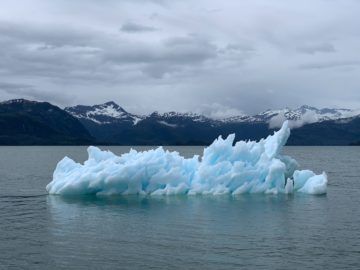 Gernot Wagner in Bloomberg (Photo by Melissa Bradley on Unsplash):
Gernot Wagner in Bloomberg (Photo by Melissa Bradley on Unsplash):
Tell me if you’ve heard this one before: Climate change isn’t about what we know, it’s about what we don’t. What we know is bad enough, what we don’t is potentially much worse. Consider, also, the irreversible, large-scale events — tipping points, like the Amazon drying out, the West-Antarctic or the Greenland ice sheet disintegrating — and the costs start to add up.
It’s precisely these costs of major planetary tipping points that I set out to calculate with three stellar colleagues in a paper published this week in the Proceedings of the National Academy. The main finding, heavily caveated as is the wont of any such research: A conservative estimate raises the urgency of action today by around 25%. The metric to capture this urgency is the social cost of carbon, what each ton of CO₂ emitted today costs society — and, thus, should cost those doing the polluting.
That 25% alone represents a significant impact, but we cannot leave things there. For one, it represents what we call a “probable underestimate,” for all sorts of important reasons, not least the fact that both the science and perhaps especially the economics are indeed inherently conservative.
More here.
